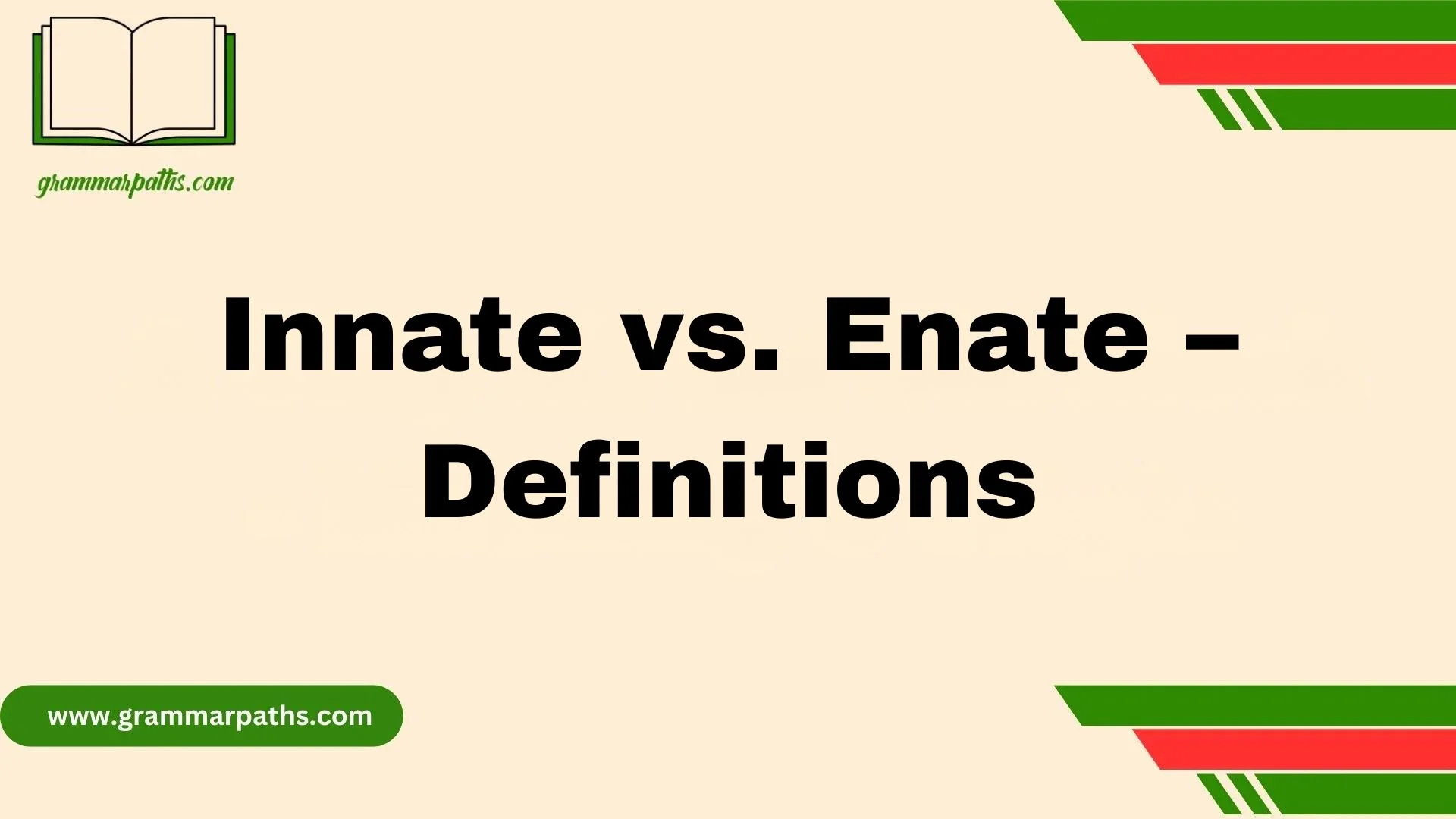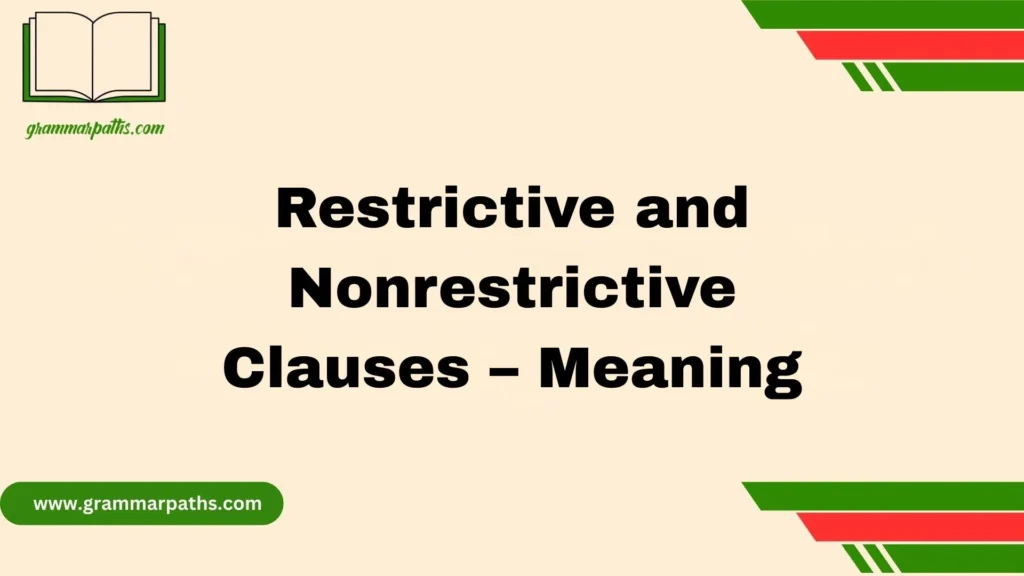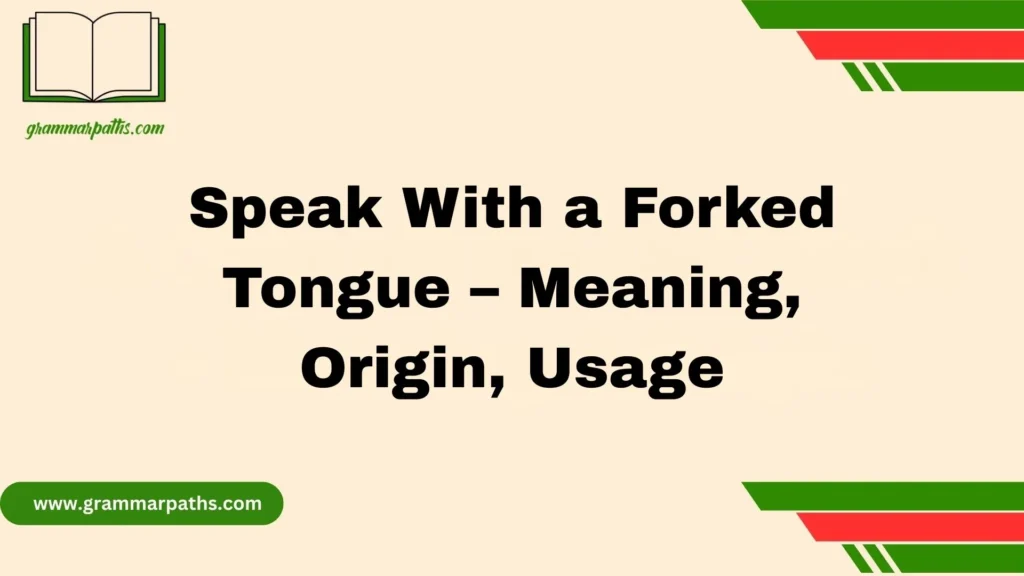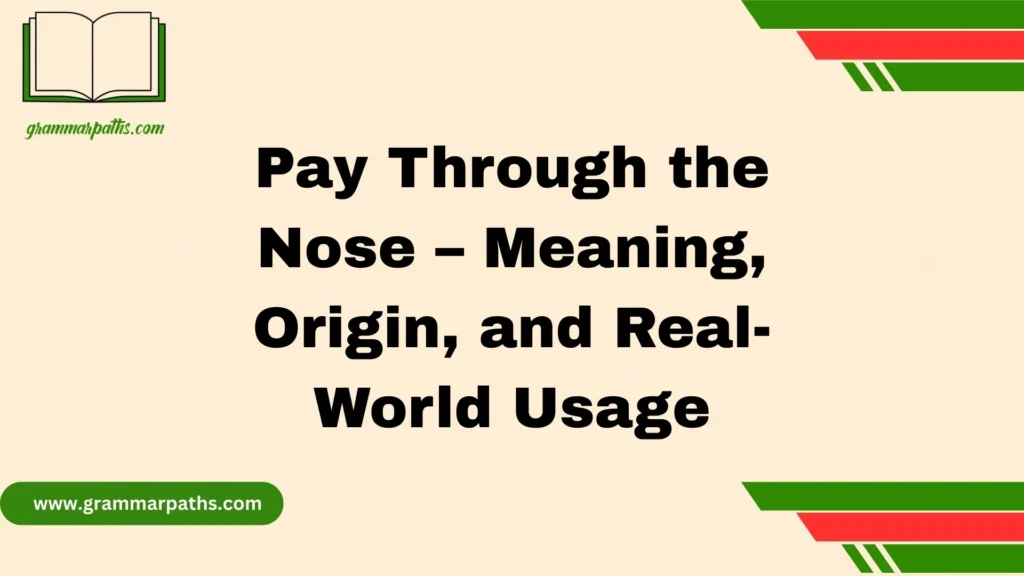When I first encountered the words innate and enate in texts while editing an article, I realized how tricky homophones can be, even for experienced authors. The words sound nearly identical, but their meanings live in completely different worlds. Innate refers to a natural ability or talent someone is born with, like the skill to write or draw beautifully. Using it in a sentence requires clarity and confidence, because it highlights something intrinsic to a person rather than something learned. On the other hand, enate is an archaic term used historically to denote a maternal relative, such as an aunt on your mother’s side. This subtle difference often gets overlooked by people, especially in formal writing.
From my experience as a language editor, knowing how to tell these words apart is crucial. Choosing the right word depends on context: innate emphasizes skill and inherent talent, while enate relates to family, legal, or historical contexts. Mastering these details not only sharpens your writing but also gives your voice a polished, true quality. Carefully choosing words enhances clarity, brings flair, and ensures your article communicates the intended meaning without confusion.
Homophones: Innate vs. Enate
Homophones are words that sound alike but differ in spelling and meaning. Innate and enate fall into this category. While many writers encounter innate regularly, enate is rarely used outside academic or genealogical contexts. Misusing these words is common because their sounds are so similar, but their meanings are distinct.
- Innate refers to traits or qualities that are inborn or natural.
- Enate describes something related through the mother, particularly in familial or anthropological studies.
Recognizing these differences is essential for professional writing, academic papers, and even casual communication that aims for precision.
Understanding Innate
The word innate comes from the Latin innatus, which literally means “inborn.” It is an adjective used to describe qualities, abilities, or characteristics that exist naturally rather than acquired through learning or experience.
Key Usage Contexts for Innate
- Personal traits: “Her innate kindness made her beloved by all.”
- Skills or abilities: “He has an innate talent for music.”
- Nature versus nurture discussions: “The debate often explores innate behaviors in humans.”
Examples in Sentences
- “Creativity is not just learned; it can be an innate part of someone’s personality.”
- “Some people possess an innate sense of direction that helps them navigate unfamiliar cities.”
- “Courage can be an innate trait, visible even in children.”
- “Her innate curiosity led her to explore the mysteries of science.”
Common Misconceptions
Many assume innate implies superiority or talent only, but it can describe any natural quality, including emotional tendencies, instincts, or reactions.
Exploring Enate
Unlike innate, enate is less familiar to most English speakers. Its roots lie in the Latin enatus, meaning “born of a mother.” It is used mainly in genealogy, anthropology, and historical texts.
Definition and Context
- Enate describes relationships or traits derived through maternal lineage.
- It is also an adjective but appears far less in everyday speech.
Example Sentences
- “The inheritance rules favored enate relatives in this royal family.”
- “Anthropologists noted the tribe’s enate social structure, emphasizing maternal descent.”
- “Her enate connections traced back to the prominent families of the region.”
Common Misunderstandings
- Many confuse enate with innate due to phonetic similarity.
- Its rarity in modern writing contributes to misinterpretation, making contextual cues essential.
Innate vs. Enate: How to Distinguish Them
Understanding the differences between innate and enate is easier with direct comparison.
| Word | Meaning | Usage Context | Common Mistakes | Synonyms |
| Innate | Inborn, natural | Traits, abilities, personality | Mistaken for “enate” | Natural, inherent, instinctive, congenital |
| Enate | Related through mother | Genealogy, anthropology, family lineage | Confused with “innate” | Maternal, matrilineal, mother-related |
Tips to Remember
- Innate = Inborn qualities. Think “I’m born with it.”
- Enate = Maternal lineage. Think “from the mother.”
- Always check the context: if it discusses abilities or traits, use innate; if it’s about family or ancestry, use enate.
Synonyms and Related Words
Innate Synonyms
- Natural: “He has a natural talent for painting.”
- Inherent: “The risk was an inherent part of the adventure.”
- Instinctive: “Her instinctive reaction saved the child.”
- Congenital: Typically used in medical contexts, e.g., “a congenital heart defect.”
Enate Synonyms
- Maternal: “Maternal influence shaped her education.”
- Matrilineal: “The tribe followed a matrilineal inheritance system.”
- Mother-related: “Enate ties often dictated social obligations.”
Subtle Differences
- Synonyms for innate focus on traits or qualities.
- Synonyms for enate emphasize family or maternal connection.
Why Correct Homophone Usage Matters
Homophones like innate vs. enate affect clarity, professionalism, and credibility.
- Academic Writing: Misuse can confuse readers or reduce the perceived authority of your work.
- Professional Communication: Precise word choice reflects careful thought.
- Everyday Clarity: Using the wrong homophone can change the meaning entirely, e.g., claiming a talent is enate instead of innate.
Real-World Case Study
In a genealogical journal article, a researcher wrote:
“The child’s intelligence was enate.”
The editor corrected it to:
“The child’s intelligence was innate.”
This small change preserved accuracy and clarity, preventing readers from misinterpreting maternal lineage as a natural talent.
Other Homophones Commonly Confused
Understanding innate vs. enate is easier if you also recognize similar tricky homophones:
- Elicit vs. Illicit: “Elicit” means to draw out; “illicit” means illegal.
- Affect vs. Effect: “Affect” is a verb; “effect” is usually a noun.
- Compliment vs. Complement: “Compliment” is praise; “complement” completes something.
Tips to Avoid Confusion:
- Always double-check meaning before using.
- Read your writing aloud to catch mistakes.
- Use mnemonics or memory aids for rare words like enate.
Interactive Mini-Quiz
Try filling in the blanks with innate or enate:
- Her ___ sense of rhythm made her a natural dancer.
- The ___ connections in the royal lineage were carefully documented.
- Courage can be an ___ trait, visible even from childhood.
- Anthropologists studied the tribe’s ___ social structure.
Answers: 1-innate, 2-enate, 3-innate, 4-enate
This exercise reinforces practical usage and helps solidify memory.
Conclusion
Understanding the difference between innate and enate is key to using these homophones correctly. Innate highlights a natural ability or talent a person is born with, whereas enate refers to a maternal relative, like an aunt on your mother’s side, often appearing in legal or historical texts. Paying attention to context ensures you choose the right word and conveys clarity in your writing. As a language editor, I’ve found that mastering these details sharpens your skill, giving your voice a polished, true quality, and adding flair to your articles.
FAQs
Q1: What does “innate” mean?
Innate describes a natural talent or ability someone is born with, such as the skill to write or draw.
Q2: What is the meaning of “enate”?
Enate is an archaic term for a maternal relative, like an aunt on your mother’s side, mostly found in legal or historical texts.
Q3: How can I remember the difference?
Focus on context: use innate for skills or talents, and enate for family relationships. Knowing this clarity will tell you the right word to use.
Q4: Are these words pronounced differently?
They are pronounced almost identical, which makes them tricky homophones, so careful editing and attention to context are necessary.
Q5: Why is mastering these words important?
Mastering these details sharpens your writing skill, enhances your voice, and ensures articles or sentences convey the true meaning with confidence and flair.

Emma Brooke is a passionate language expert and contributor at GrammarPaths.com, where she helps learners navigate the complexities of English grammar, idioms, and effective writing. With a strong academic background and years of teaching experience, Emma excels at turning tricky grammar rules into simple, practical lessons that readers can easily grasp.












